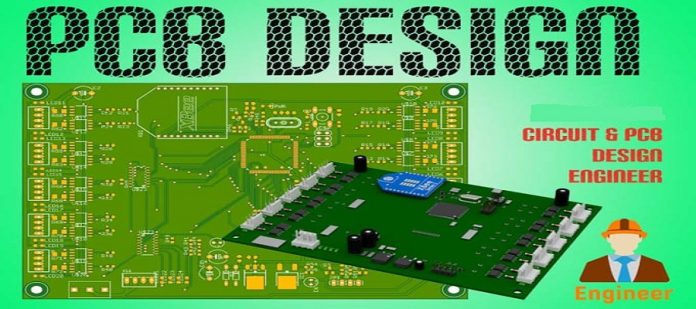Imagine a world without electronics. It’s hard, isn’t it? Electronics are the backbone of our modern lives, powering everything from smartphones to spacecraft. Behind every electronic marvel lies a Printed Circuit Board (PCB), an integral part of the technology we rely on. The field of PCB design and manufacturing is one of the cornerstones of the electronics industry, and it’s rapidly growing in India. If you’re seeking a career that combines innovation, technology, and a promising future, then you should certainly consider the world of PCB design and manufacturing.
PCB Design and Manufacturing Market Size in India
The Indian PCB design and manufacturing market is growing rapidly. According to a report by IMARC Group, the Indian PCB market is expected to reach US$ 11.8 billion by 2028, exhibiting a CAGR of 16.6% during 2023-2028. Several factors are fuelling the expansion of the Indian PCB market, including the burgeoning Indian electronics sector, heightened consumer demand for electronics products, and the widespread adoption of cutting-edge technologies such as 5G and the Internet of Things (IoT).
The report by Expert Market Research states that the Indian PCB market is expected to grow at a CAGR of 17.2% during the forecast period of 2023-2028. The Indian PCB market is segmented based on manufacturing type and application. The manufacturing type includes bare PCBs and populated PCBs, while the application includes consumer electronics, IT & telecom, automotive, industrial electronics, aerospace & defence, healthcare, and others.
Job Opportunities in PCB Design and Manufacturing
The electronics industry is one of the fastest-growing industries in India, and the demand for skilled professionals in the field of PCB design and manufacturing is on the rise. The PCB design and manufacturing sector in India offers a wide range of job opportunities. Some of the most common job roles include:
- PCB Designer: PCB designers create the layout of PCBs, which includes the placement of components, traces, and vias.
- PCB Layout Engineer: PCB layout engineers work with PCB designers to create and finalise the layout of PCBs.
- PCB Design Engineer: PCB design engineers oversee the PCB design process and ensure that PCBs meet all specifications.
- PCB Manufacturing Engineer: PCB manufacturing engineers oversee the manufacturing process of PCBs and ensure that PCBs are produced to the highest quality standards.
- PCB Quality Control Inspector: PCB quality control inspectors inspect PCBs to ensure that they meet all specifications.
- PCB Assembly Technician: PCB assembly technicians assemble PCBs by placing components on the board and soldering them in place.
- PCB Test Engineer: PCB test engineers test PCBs to ensure that they are functioning properly.
- PCB Sales Engineer: PCB sales engineers sell PCBs to customers and provide technical support.
- PCB Marketing Manager: PCB marketing managers develop and implement marketing campaigns for PCBs.
- PCB Product Manager: PCB product managers develop and manage PCB products.
- Research and Development (R&D) Engineer: R&D engineers in PCB design and manufacturing focus on innovation and new product development.
Paving the Way: The Role of the Electronics Sector Skills Council of India (ESSCI)
Before delving deeper into this exciting career path, it’s essential to understand the support system in place to nurture and develop talent in the electronics sector. In India, the Electronics Sector Skills Council of India (ESSCI) plays a pivotal role in shaping the industry’s workforce. ESSCI is a not-for-profit organisation established to bridge the skills gap and provide the necessary training and certifications required by professionals in the electronics sector.
ESSCI has developed a number of skills standards for PCB design and manufacturing, including:
- PCB Assembly Operator: The PCB assembly operator is responsible for manually placing different types of components on the PCB as per the design requirements and then soldering them. With experience and continuous learning, a PCB Assembly Operator can explore various career pathways within electronics manufacturing, including:
- Lead Assembly Operator: Taking on a leadership role to oversee and guide a team of operators in the assembly process.
- Quality Control Inspector: Specialising in quality control and conducting thorough inspections to ensure the highest standards of quality are met.
- Process Engineer: Transitioning to roles focused on optimising assembly processes and improving efficiency.
- Product Development: Participating in the development of new products or enhancements to existing ones.
2. In-Process and Final Quality Engineer: The individual at work sample checks final PCB assembly for functional conformance as well as visually before they are packed and dispatched. The individual is responsible for ensuring total quality or IPC or ISO standards compliance during the assembly of PCBs. A career as an In-Process and Final Quality Engineer can lead to various pathways within the electronics manufacturing industry:
-
-
- Quality Assurance Manager: Overseeing the entire quality control department, managing a team of engineers, and developing quality control strategies.
- Process Improvement Specialist: Focusing on optimising manufacturing processes and enhancing efficiency.
- Regulatory Compliance Officer: Specialising in ensuring that manufacturing processes adhere to industry regulations and standards.
- Product Development: Participating in the development of new products, with a focus on ensuring their quality and reliability.
-
3. Incoming QC Technician: A career as an Incoming QC Technician can be an excellent starting point for individuals looking to enter the electronics manufacturing industry. It provides foundational knowledge and expertise in quality control processes, which can pave the way for advancement within the organisation.
The individual at work is responsible for checking the quality check on the components and modules procured from suppliers for the production of hardware equipment. The individual performs physical and functional quality check processes on the components and modules and ensures QC-passed components is used for hardware assembling. With experience and continuous learning, an Incoming QC Technician can explore various career pathways within PCB manufacturing, such as:
- Quality Control Supervisor/Manager: Overseeing the entire quality control department and managing a team of technicians.
- Process Engineer: Transitioning to roles focused on optimising manufacturing processes to enhance efficiency and quality.
- Product Development: Involvement in the research and development of new products or improvements to existing ones.
- Quality Assurance Specialist: Specialising in quality management systems and regulatory compliance.
How to Become a PCB Designer
If you are interested in becoming a PCB designer, there are several steps you can take to get started. First, you should consider pursuing a degree in electronics engineering or a related field. You can also gain experience by working as an intern or apprentice in a PCB design and manufacturing company. Some of the essential skills required to become a PCB designer are:
- Knowledge of electronics and circuit design
- Understanding of PCB manufacturing processes and design tools such as Proteus, Eagle, Altium & ORCAD.
- EDA tool Knowledge
- Should be capable of designing different types of PCBs.
- Capability of designing more than two-layer PCBs.
- Should be strong in transmission line theory.
- Exposure to manufacturing and PCB materials.
In conclusion, a career in PCB design and manufacturing in India offers a multitude of opportunities for growth, innovation, and professional development. With the support of organisations like ESSCI and the rapid expansion of the PCB industry, aspiring professionals can look forward to a rewarding journey in this dynamic and vital sector of the electronics industry. So, if you have a passion for technology and a desire to shape the future, consider embarking on this exciting and promising career path in PCB design and manufacturing.
Author:

Electronics Sector Skills Council of India









